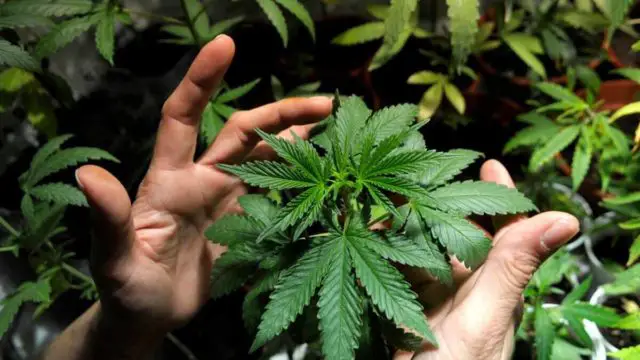An opposition legislator presented this past Friday in Parliament a project so that tourists can access legal marijuana in Uruguay, almost a decade after the country became a world pioneer in decriminalizing its recreational consumption.
“Many tourists want access to cannabis when they come to Uruguay, those of us who live in a tourist place know this,” Eduardo Antonini, the main author of the project and a deputy for the department of Maldonado, to which resorts such as Punta del Este belong”, said.
“An owner of a pharmacy that sells cannabis in the city of Maldonado told us that cruise ships were arriving and many cruise passengers took a taxi right there in the port to get to his pharmacy to buy the famous legal marijuana,” he recalls as an example, but where met with the surprise that they could not buy it.
Legal barrier
Approved in 2013, Uruguayan legislation implemented three mechanisms to acquire marijuana: self-cultivation, cannabis clubs and purchase in pharmacies, all under state regulation and restricted to those who reside in the country.The idea now is that visitors can buy during their stay through one of these channels.
The Draft Law on Cannabis Tourism states that “tourism enterprises that are accredited (…) may associate with membership clubs (…) or have them within their facilities,” according to the document.
Businesses such as hotels or “grow shops” will be able to offer tourists a temporary membership in a cannabis club, or register to purchase marijuana in pharmacies as required by law for local users, explains Antonini.

The reform would deepen the original premise of gaining ground from drug trafficking. “Each portion that is taken from the black market is important,” maintains the legislator of the leftist Broad Front.
Expanded economic growth
But the economic factor is decisive. Antonini sees in the opening of the cannabis market to tourism a “significant income” encouraging enough to give the green light to the proposal.The formula is simple: if tourism grows, spending increases, jobs increase and investments increase.
Models like California well illustrate the potential of the business, maintains the legislator. In that American state, the circuits that offer to visit farms and tours attracted 5 million tourists in 2019 and have generated tens of thousands of jobs, in addition to millions of dollars for the state in taxes.
The new bill is the result of a year of consultations with members of the government and state institutions, including clubs and “grow shops” (the cannabis-themed stores).
After its discussion in the Tourism Commission, of which Antonini is vice president, it must be debated in both chambers, a process that may take months but about which Antonini says he is optimistic.
